Sessions / Zoom 1
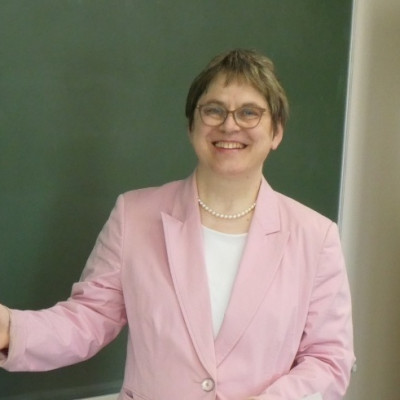


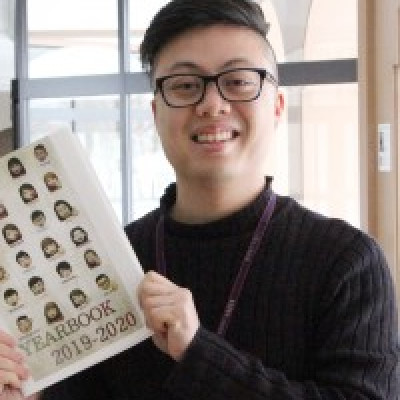






Developing an Intercultural Understanding as Teachers #1236
Language teaching involves a commitment to, and interest in, intercultural communication. In providing language learning instruction, practitioners are not merely sharing linguistic knowledge and skills in a one-directional manner, but are continuously negotiating and learning from their students’ dynamic experiences, repertoires, and identities. As English is a lingua franca, which facilitates communication across cultures, a sensitivity to the intricacies of interaction between groups from different speech backgrounds is essential. In an era characterised by division and remoteness, language educators’ roles have become even more paramount in upholding and promoting intercultural mindsets. However, these skills may be overlooked or complicated to build and hone.
This forum is a collaboration between the Teacher Development (TD) and Intercultural Communication in Language Education (ICLE) SIGs. Featuring a panel of invited speakers from the SIGs, each presenter will explore a different element of what developing intercultural practice, understanding, and principles as a foreign language educator entails. Following the presentations, the panellists will interact about points of interest and resonance, and there will be an opportunity for audience participants to share their reflections and contribute to the dialogue. It is hoped that this session will provide guidance for developing intercultural teaching approaches and language learning environments.


Adapting to Assure Learner Goal Achievement amidst the Coronavirus Pandemic #1355
As the COVID-19 pandemic continues worldwide, higher education institutions are needing to adapt courses to accommodate policies such as social distancing and online learning. Since 2020 most university instructors have experienced policies such as these, coping with it as emergency situation teaching. There is a need to rethink course design in order to maximize learning goals and student performance whether society's situation is normal or coping with public health issues. This presentation will examine how course design needs to be flexible so learners can achieve goals through different mediums such as in person, online, on demand, HyFlex, etc. Firstly it will focus on Learner Management Systems (LMS) and how they can consolidate courses so they can be accessed easily across all mediums. Then, it will explain how Online storage tools give learners the ability to access and submit work. After that it will look at various study tools and their benefits and examples of their implementation. Finally it will briefly review fundamental pedagogical approaches and their connection to this context.

Are they actually reading my online materials? #1321
The last year has seen an explosion in the need for online and hybrid language courses, and with that has come many challenges and opportunities. One of the many challenges is tracking whether or not learners are in fact accessing and interacting with the online materials. Students submit their assignments, but are they actually reading the material? And if they are, which documents do they focus on? Using OneDrive's data tracking functions, this presentation gives an overview of how students interacted with the course material in an intermediate-level presentation course of approximately 500 students. The presentation covers the main trends in terms of which materials were prioritised and most frequently viewed, and also makes recommendations for how teachers can better organise online materials to allow for maximum engagement.
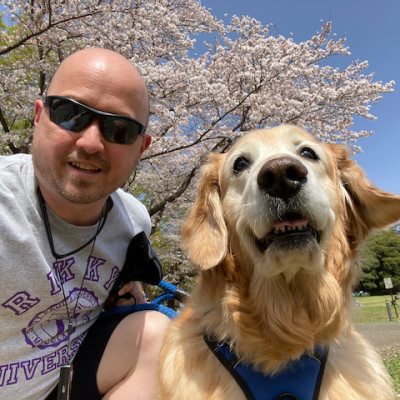
Communities of Practice helping teachers adapt to sudden changes #1281
The COVID-19 pandemic led to an unprecedented level of sudden change for educational institutions on a global scale in 2020. As in much of the world, many universities in Japan moved to emergency remote teaching online. Large numbers of teachers felt underprepared to move their courses online and to teach online, especially on short notice. For these teachers, the support provided from their schools’ media centers often fell short of instilling confidence in them for the transition. As a result, many teachers turned to their colleagues and formed support groups. These communities of practice (COPs; Lave & Wenger, 1991) formed and developed in universities and in social media groups. This short presentation will provide specific examples of COP and will share practical suggestions about how COPs can help prepare teachers to adapt to change in the future.

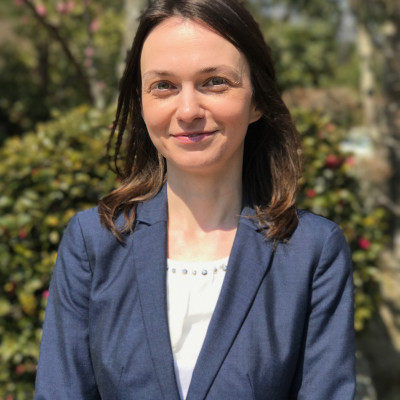
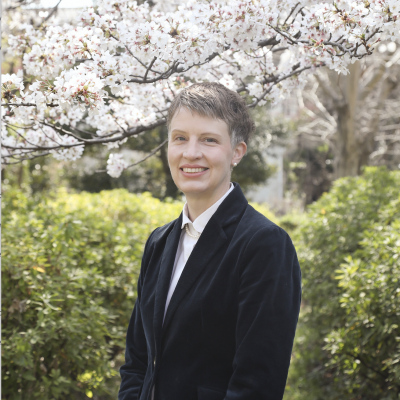
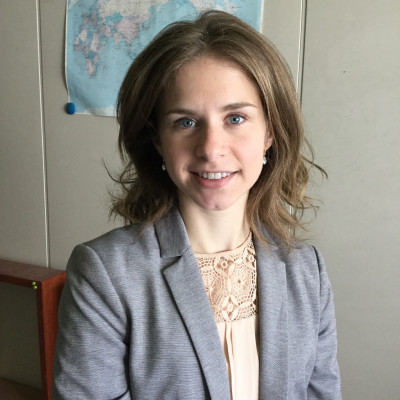


From Chalkface to Interface: Challenges and Triumphs in Emergency Remote Teaching #1235
While veterans of the virtual learning environment may have found the recent remote teaching requirements a welcome opportunity, most others adopted new technologies and teaching methods on an emergency basis. Our presenters will talk about their own explorations and discoveries as they faced new challenges while trying to maintain teaching quality and learner engagement. It is hoped that all participants will feel free to share their own experiences.
Dr. Wendy Gough: "Supporting faculty members during ERT"
Mary Hillis: "Collaboration in organizing online events"
Jennifer Toews-Shimizu: “Bricolage Teacher: Supporting professional development for post-2020 teaching”
Jamie Taylor: "Increasing student engagement with smartphone apps"
Jonathan Isaacson: "Podcasting for everyone’s edification and enjoyment"


Bending Over Backwards: Scaffolding Online Courses #1285
When the students of your task-based curriculum must abruptly abandon the classroom and retreat to the isolated safety of their device screens, how can you continue to guide students toward achieving the program goals? In this presentation, these researchers share how they continually readjusted their backwards-model curriculum design and class materials to develop students’ discussion and critical thinking skills in response to changing conditions amidst the new social distancing. While the 300 university students had mainly spent their summer semester with asynchronous reading and writing-based lessons, transitioning them to spoken output in synchronous lessons caused a multitude of daunting obstacles such as varying English abilities, lack of technology access, a limited software platform, and growing demands on students from all sides. However, through a constant revision process and a flipped classroom model with both synchronous and asynchronous assignments, the researchers combined engaging online media, scaffolded articles, and original materials in order to build student knowledge, skills, and confidence. Results in speaking tests and end-of-year student surveys show that the new materials were both effective and popular amongst the students.
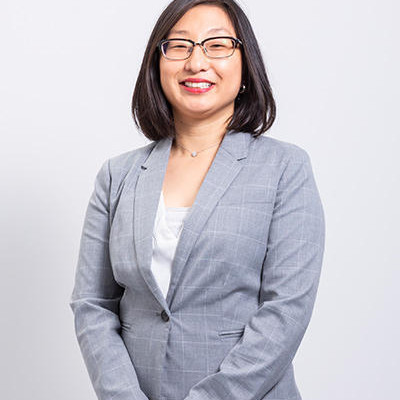
Leadership and Teams in Academic Service #1282
This presentation will discuss features that are crucial to developing effective leadership and teams. First, the basic process of team-building will be briefly presented, including the establishment of cohesion, roles and norms, and motivation in teams. Second, best practices for communication and the importance of communication climate (Gibb, 1961) for virtual teams (Gibson & Gibbs, 2006) will be discussed. Finally, the presenter will share how mentoring and orientation initiatives can improve engagement for team leaders and members of all experience levels. The second half of the session will then open to discussion about challenges and issues experienced in leading and working in teams in Japan, particularly while online or hybrid. Participants are encouraged to bring their own experiences, techniques, and research to share and inform the discussion. This session will especially benefit leaders of chapters or SIGs, committee members, and other professional development, academic service, and nonprofit leaders (or those who are interested in becoming leaders), but could also be applied to workplace and classroom settings.



Creating and Implementing an Online Placement Test #1333
This short presentation will describe the experience of moving from a third-party, paper-based English proficiency placement test to an original online version created by the presenters. We will discuss practical approaches to designing a placement test for first and second year undergraduate English language learners that aligns with CEFR bands (A1-B2/C1) and its implementation using Google Forms. The test consisted of 60 multiple choice questions covering listening skills (true/false statements, specific/global comprehension), vocabulary and grammar understanding (sentence completion, word definitions, synonyms, etc) and reading comprehension skills (analyzing content of an advertisement, short and long passage comprehension and interpretation). Students were instructed to complete the test within 90 minutes. Because our test included listening, vocabulary, grammar, and reading items, we will be able to give a comprehensive overview of the process for creating audio content and including appropriate target language. We will describe the collaborative challenges of creating a test entirely online and give advice for others who are interested in creating their own placement tests. This presentation will be of particular interest to anyone who wishes to learn about creating an online CEFR-aligned placement test. It will also be valuable for educators who are interested in conducting online testing using Google Forms.

Edmodo activities to engage reluctant L2 learners #1365
Many teachers find it challenging to engage reluctant EFL learners to communicate in English meaningfully and extensively in university classes for non-English majors, especially when the students are used to lecture-style learning and absorbing information quietly. In the case when classroom instruction is moved online, the challenge to engage students becomes amplified. To meet the needs of online classes, web-based learning platforms, such as Google classroom and Moodle, have become useful tools. Edmodo is one of these free-of-charge online services. Through Edmodo teachers can share information, distribute materials, assign and collect assignments digitally, as well as conducting and facilitating discussions through its unique small-group feature. Edmodo’s accessibility also makes it a “paperless” solution to supplement any face-to-face classroom. This session will start with a quick overview of Edmodo: what it is and how it can be used in a university classroom. Following, the presenter will share their experience using Edmodo in an English Oral Communications class for Early Childhood Education students. The presentation will highlight activities that can engage these reluctant English learners in real, meaningful communication online through the Edmodo platform.
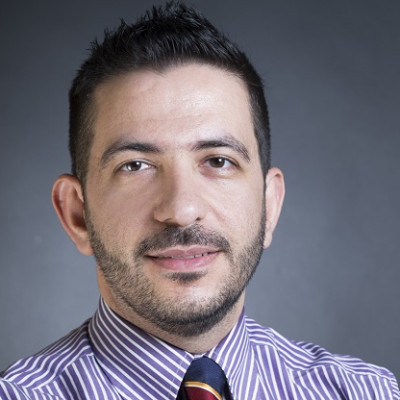
ELT teacher perspectives of technology use during COVID-19 #1372
During COVID-19 many teachers were asked to improvise and teach online. Many were not prepared to teach online and had to learn many technological tools, theories, and routines that were not directly related to ELT. While technology is assisting language learning, it has been put on the spot to provide solutions. Popular technologies such as Zoom, Google Meet, Microsoft Teams, and others became the medium of instruction in class. A lot of time and energy was spent by teachers to learn these technologies. How have teachers perceived this technological change and how will it affect ELT in the future? This presentation will give some empirical data from the presenter and his experience as a teacher during COVID-19 times. He will also share some research findings from approximately 150 ELT teachers in the Gulf countries. The research used a survey and semi-structured interviews about the use of technology in the ELT classroom by teachers. Primary results show that teachers went through a lot of stress incorporating technology in their classes.

Exploration of translanguaging based on two years of action research #1258
This will be a presentation of notable takeaways from two years of action research focused on the potential influence and reception of L1 use within the context of L2 communicative language learning classrooms at the university level in Japan. The purpose of the research shared in this presentation was to determine the role—if any—and optimal application of pedagogical translanguaging practices among both teachers and students in communicative language learning environments.
Data was gathered for this study through a sequential-triangular approach composed of (1) QUAN/qual student questionnaires, (2) QUAL student interviews, and (3) quan/QUAL student performance. Each of these methods evolved through multiple iterations over two years of research.
Findings from this research project suggest that when optimally applied, pedagogical translanguaging offers several advantages within the framework of communicative language teaching and is readily received and embraced by the majority of learners of varying degrees of L2 proficiency. Additionally, a core set of guidelines for optimal application of pedagogical translanguaging also emerged from findings rooted in both action research and a review of relevant literature.

Exploring translanguaging for EMI university classes #1288
Advanced English-language programs in Japanese universities outside of mandatory English classes can provide students enhanced learning opportunities through English medium-instruction (EMI) classes. EMI classes are believed to give students content knowledge and exposure to English that they might not have in their daily lives outside of the classroom. It compels them to interact with fellow students and teachers and engage in discourse that prepares them for real-world communication. However, researchers have raised concerns about the effect of students’ language proficiency on their learning as seen in a lack of engagement or interest among lower-proficiency learners which demonstrates how English-only instruction could be an issue (Tsuneyoshi, 2005; Brown, 2015; Sauzier-Uchida, 2017). Recent changes in perspectives in EFL have begun to acknowledge that the students’ L1 has value and a role in EMI settings. Applying a translanguaging approach may be a solution for improving student engagement and performance (Yamauchi, 2018 and Bartlett, 2018). The presenter will share her experience in teaching advanced English courses, highlighting the need to rethink the role of the students’ L1, i.e. Japanese, as a pedagogical tool that can facilitate comprehension and learning in EMI classes. She will discuss considerations for introducing translanguaging strategies that support successful language learning in these classes and will offer suggestions on their strategic and judicious use in class activities.


Flipped Learning Through Pre-Lesson Tasks #1369
This study explores the implementation of flipped learning in the online classroom for first-year university students (n=156) in Japan enrolled in an English debate course. It aims to investigate the benefits of flipped learning in maximizing student practice and speaking opportunities in class, and in allowing students to acquire new skills with scaffolding and to revisit new concepts. Students completed pre-lesson tasks, including watching a video and completing a related assignment and then joined the class with a basic understanding of the target skill, which they would practice in class with their peers. This mixed-methods research investigates the students’ perceptions of pre-lesson tasks and suggests there was an overall positive response to flipped learning. The benefits are presented using quantitative and qualitative data collected from their performance on pre-lesson assignments and a questionnaire to get students’ perceptions of flipped learning. It was discovered that throughout the semester students found it helpful to preview and review the skills with the videos and that their confidence levels increased when faced with new and unfamiliar skills. The study concludes with implications for future research.

Meaningful Feedback Systems in Blended Learning #1359
Feedback systems in language education are most commonly known for their remedial functions (e.g., written corrective feedback), but can assume more dynamic roles when students have more opportunities to meaningfully contribute to the process. This presentation examines several feedback systems situated as linchpins of the learning process in a one-semester blended learning (online and face-to-face) English course at a Japanese university. One system used traditional written corrective feedback on individually accessed on-demand tasks as a scaffold for pair-based communicative tasks performed in subsequent face-to-face lessons. A second system encouraged students to help guide teachers to improve and refine online content with a short turnaround time between collection of feedback and implementation. Other systems worked in conjunction with these two to provide a range of opportunities for students to become more involved with assessment-for-learning. Survey data collected at the end of the semester indicated that students strongly agreed with the appropriateness of feedback provided in this course. Takeaways of this presentation include a brief review of literature feedback in higher education and language learning, outcomes of the current feedback systems, templates (Microsoft Excel) for implementing similar feedback systems in other contexts, and suggestions for further readings.

Multiliteracy and Indeterminate Futures in the Age of Surveillance Capitalism #1323
This paper reasserts the oft-neglected notion that language learning is fundamentally a liberal art. The liberal arts can be defined by a concern for humanity’s movement through time, a project that situates the cultivation of knowledge within a temporal frame, i.e., an ongoing and purposeful engagement with the past (e.g., Arendt, 2006). This tradition implies that education is essentially a caretaker of cultural memory, a mediator between the very real accumulations of the past (retention) and the indeterminate possibilities of the future (protention). However, this tradition has been eroded by the forces of digital monitoring, mass data mining, and predictive algorithms—forces that are central to our digitally interconnected social worlds. Zuboff (2019) illustrates how ‘surveillance capitalism’ not only subjects individuals to a nonconsensual use of behavioral data for predictive use in targeted marketing, it also aims to manipulate these asymmetrical knowledge relationships to determine the future itself. This trend has enveloped the language ‘industry’ as well, a profit-oriented enterprise centered largely on the use of standardized testing as a gatekeeper for social mobility. This paper outlines how language educators might resist such deterministic schemes by implementing multiliteracy approaches to awaken possibilities for ‘social futures’ (New London Group, 2000).

Validating survey instruments to measure Japanese learners’ attitudes toward second and third languages #1278
Learners’ attitudes toward second language (L2) learning have been widely researched. However, relatively little is known about learners’ attitudes toward third language (L3) learning. The present research aims to validate survey instruments and measure learners’ attitudes toward learning their L2 and L3. In the case of Japanese learners, L2 is often English, and L3 is another foreign language. For this research, a survey with 49 items was developed based on previous studies on L2 learner attitudes. Results were collected from first-year Japanese university students (N=373). Rasch analyses were used for validation by highlighting items and participants that did not fit into the Rasch models. The present research showed that the students tend to have more positive attitudes toward learning L2 than L3. It also highlighted some differences between students’ attitudes toward learning L2 and L3. This research validated survey items for measuring L2 and L3 learner attitudes. In addition, it provides insights into Japanese learners’ attitudes toward learning foreign languages and hopefully contributes to a better understanding of plurilingualism and multilingualism in Japan.

Workplace Collegiality in ELT #1283
In the field of ELT, collegiality in the workplace is a sparsely discussed and under-researched topic. In fact, other than Breen’s (2006) seminal article on collegial development, little documented information can be found in the ELT literature. Consequently, this presentation aims to generate interest, debate, and dialogue on collegiality in the ELT workplace, especially at the higher education level. Initially, the definitional problem of collegiality and my position on it are made known. Thereafter, collegiality types of varying quality identified in an ELT department at one Japanese university are introduced as a means to encourage audience reflection on the state of collegiality in one’s employment environment. This is followed by a discussion on some of the barriers to achieving high quality collegiality in the ELT workplace before providing suggestions on how to break these down.

Online Score Updates for Fostering Responsibility #1300
When assessment is continuous and ongoing, rather than based on a heavily-weighted final examination, students who miss too many assignments throughout the semester can find themselves mathematically unable to attain a passing grade. To avoid such a situation during a semester of distance learning, an online “Scores Update Sheet” was created for each class and updated weekly with the students’ scores for each assessment task, using anonymous code-names which the students chose themselves. Every week, students were required to complete an online form attesting that they had checked the Scores Update Sheet. It was hoped that this would not only be an informative means of acknowledging the receipt of assignments and of giving feedback, but that it would also foster a sense of responsibility, in that students would be informed of low scores in time for them to take appropriate action to improve them. A survey administered at the end of the semester showed emphatically that the Scores Update Sheet had been helpful for students, and had made an important difference to the way most students prioritized their assignments. Almost all students expressed a wish that such a facility was in place in more of their classes.

Student Reflections of Online Presentations #1351
There were many benefits to gain from the recent shift to online classes, such as the opportunity for both students and teachers to improve their technological skills. However, classroom interactions were being transferred onto an unfamiliar online platform using new applications. This session will focus on the challenges encountered by students doing presentations in online classes. Although a very familiar activity to students in a traditional classroom setting, the transfer of this activity to an online environment created a whole new dimension to the common presentation. The detailed feedback provided by the students was gathered from opportunity samples of post-activity feedback and will be presented here. The students’ personal reflections revealed not only how they could improve their own presentations, but also referred to how other students could help improve the online classroom environment. Following these student revelations some practical solutions will be given and discussed on how presentations could be conducted more successfully in online classes. These student insights into the many challenges of doing presentations in online classes allowed for fresh improvements and greater student self-actualization that can have positive implications whether online or in the classroom.

Tutor Voices: Adjusting to Online Writing Tutoring #1309
Writing center tutoring is about developing the writer and not just editing their papers (North, 1984; 1994). Tutors are taught skills to put writers at ease. Some of these skills include asking questions that engage the writer and respecting silence during tutorial sessions. The year 2020 brought a global pandemic and with it a slew of changes to academic life and subsequently writing center tutoring. Face-to-face tutoring sessions became nearly impossible, and several writing centers switched to an online tutoring format. The already delicate interaction between tutor and writer was thrust into an uncharted arena. Some of the tutors' skills could easily be adapted to an online format, but distinct and unforeseen challenges arose. Four currently practicing tutors were interviewed about their struggle to adjust to online tutoring. The responses were transcribed and coded. Some of the challenges addressed by the tutors included the stronger role of silence during sessions, enforcing the boundaries of sessions, and frustration dealing with new technological platforms. The tutors also mentioned how both trial and error and collaboration/conferencing with other tutor peers helped them overcome some of these difficulties. While this presentation focuses mainly on tutorial sessions, the challenges listed have overlap with general classroom instruction.